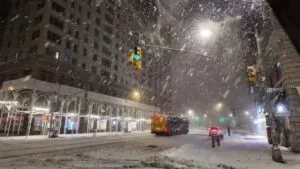Installing security cameras often feels like stepping into a maze of pricing details. For anyone looking to add an extra layer of safety to their property, it helps to know how much labor might cost.
From a single wireless camera on a cozy porch to a robust system with multiple wired units all around a large commercial building, price points jump up and down.
The following sections offer a friendly look at current labor costs, plus a few pointers on reducing expenses without giving up quality or peace of mind.
Table of Contents
ToggleKey Highlights
- Labor per camera typically costs $80–$200, with wireless installations being cheaper and simpler than wired ones.
- Wireless cameras cost $80–$120 in labor, while wired systems run $150–$200 due to added complexity.
- Costs depend on location, accessibility, difficulty, and required expertise (e.g., residential vs. commercial).
- Mounting, wiring, recording devices, and supplies can add $20–$300 or more to total costs.
- DIY can save money but risks poor placement or errors; professionals offer warranties and expertise.
- Bundle services, plan placements, skip unnecessary features, and shop for quotes to reduce costs.
Labor Costs In 2025

A wide spectrum of factors influence labor costs, creating a scenario where the final bill can vary a lot. In many cases, the labor rate per camera might hover between $80 and $200.
Simpler projects, such as installing a small camera or two where accessibility is straightforward, tend to land near the lower end. More challenging installations might run closer to that upper boundary.
Keep in mind that certain properties push technicians into corners nobody likes: crawling through attics, navigating tricky wiring paths inside walls, or managing lifts to reach high spots.
That kind of complexity often nudges labor costs upward. Location also matters. Major cities, where professionals charge premium rates, might see per-camera costs rise more than rural areas.
Simpler Setups
A basic wireless camera installation may cost around $80 to $100 in labor per unit. It’s often just a matter of mounting the CCTV camera and ensuring it connects properly to a home network.
The absence of extensive wiring usually makes life simpler for everyone, including the folks doing the work. A homeowner might see their total project finished in an afternoon without too much fuss. In some cases, you can use iPhone as security camera.
More Challenging Installations
Wired systems can prompt a jump in labor fees, often reaching $150 to $200 per camera. Running cables behind walls, ceilings, or through existing conduit is more labor-intensive.
Technicians must pay attention to signal quality, cable protection, and even aesthetic considerations so wires don’t stand out. In large commercial buildings, the effort can increase even more, since multiple stories, complex layouts, and secure areas may demand special tools or extra manpower.
Additional Expenses Beyond Basic Labor

Labor isn’t the only player here. The camera’s price tag, the complexity of any mounting hardware, recording devices like DVRs or NVRs, and various supplies all factor into the grand total.
Going for a top-tier 4K camera with night vision pushes costs higher than a simple entry-level model.
Camera Prices At A Glance
- Entry-Level: $50–$100 per camera
- Mid-Range With Extras (like pan-tilt-zoom): $150–$200 per camera
- High-End With Premium Features: $200+ per camera
Mounting And Wiring Add-Ons
Some installations need special brackets, extensions, or tricky cable runs that add between $20 and $50 to the labor total per camera. Long runs of wire across large properties add both time and expense.
Odd angles or uneven surfaces can also play a role. For instance, installing a camera on an old brick wall or beneath a weathered soffit might require additional materials and careful placement.
Recording And Monitoring Equipment
For those aiming to record footage and store it for later viewing, a DVR or NVR installation might run between $100 and $300 extra. Adjusting settings, ensuring compatibility, and wiring these units into the network eat up technician time.
Although modern DVRs and NVRs are often more user-friendly, specialists still need to ensure everything syncs up perfectly before wrapping up.
Miscellaneous Supplies
A handful of minor extras can pop up. Screws, conduit, cable management tracks, and specialized mounts might total an added $20–$50 or more.
Small fees add up, so it’s wise to factor in a buffer rather than feeling surprised at the end.
Residential Vs. Commercial
Home Installations

Most homeowners envision a simple system with around four cameras, or cameras inside a house. Labor plus equipment might cost anywhere from $500 to $1,200. In many cases, labor alone can account for around 40–60% of that total.
Some people opt for wireless units to keep costs in check, while others prefer the reliability and image quality of wired models, even if they cost more upfront.
Business And Commercial Projects
A sizable commercial setup with 8–12 cameras may land between $2,500 and $5,000, factoring in labor and hardware.
Professionals charge more since a business often requires higher-quality units, better cable management, and sometimes integration with existing security infrastructures.
The stakes feel higher, and the systems often need to stand up to more challenging conditions, demanding more advanced technical skills.
DIY Vs. Hiring A Professional
A handy individual might consider doing the work themselves. Zero labor fees sound appealing, especially for a small project.
Bear in mind that tackling an installation without professional experience might result in errors, time-consuming troubleshooting, or subpar camera placement.
Still, for anyone comfortable with tools and tech, DIY can make sense. On the other hand, professional services offer warranties, customer support, and confidence that everything is installed correctly the first time around.
Installing a camera isn’t just about screwing it to a wall. It’s also about ensuring the device captures the right angles, the wiring remains safe and hidden, and the equipment stands the test of time. Also, see how you can hide a security camera.
Key Factors Influencing Labor Costs
1. Location And Regional Rates
Geography plays a huge role in pricing. Technicians in urban centers with a higher cost of living often charge more.
For example, a labor rate in California might run $120–$200 per hour, while a small town in the Midwest might see rates closer to $80–$150 per hour.
It’s similar to many professional services—more populated areas usually carry steeper pricing.
2. Accessibility And Installation Difficulty

Not every camera can sit neatly on a wall at eye level. Some must be placed high above ground, on a sloped roof, or inside tight crawl spaces.
Extra equipment like ladders, lifts, or scaffolding increases both cost and required expertise. Cable runs that stretch across several rooms or floors add installation hours.
Ultimately, a job that looks simple on paper can balloon if the site poses obstacles.
3. Skill And Expertise Requirements
A basic camera might be installed by a handyman at the lower end of the labor spectrum. But a complex network with multiple cameras integrated into a business security system could demand certified security professionals or licensed electricians.
Wireless Systems
Wireless installations generally feel lighter on the wallet. Labor might hover between $80 and $120 per camera.
No complicated cable runs keep labor times down, which means less money spent on hourly charges. Smaller residential setups benefit from this cost-saving scenario.
Wired Systems

Wired installations tend to be more expensive. Expect $150 to $200 per camera in labor, largely due to threading cables through walls or ceilings.
Still, paying more upfront might yield better reliability, less interference, and possibly superior image quality. Businesses and larger properties often lean toward wired systems because they can stand up to harsh conditions and tampering attempts.
Timing And Labor Duration
Time required to install a single wireless camera could fall in the range of 1–2 hours, assuming no unusual challenges arise. A wired camera may take 3–5 hours per unit due to the need to run cables, connect them neatly, and ensure signals are strong.
Multiply that by several cameras, and the labor hours can stack up quickly. Those costs can feel hefty, yet the stability and performance offered by a properly installed system often pay off in the long run.
Tips For Keeping Labor Costs In Check
A few strategic moves can help keep expenses reasonable.
- Bundle Services: Ask professionals about discounts when installing multiple cameras. Bulk rates sometimes trim a bit off the per-unit labor cost.
- Plan Ahead: Know exactly where each camera needs to go. Asking installers to move cameras around after the initial mounting might cost extra.
- Avoid Unnecessary Features: Skip non-essential bells and whistles. Extras cost time and money, especially if they complicate installation.
- DIY Prep Work: Before calling professionals, handle easy tasks like clearing the area or drilling basic holes. Some installers allow partial DIY, reducing labor hours.
- Shop Around For Quotes: Compare several professionals. Look at reputation, experience, and customer reviews—not just the final price. Cheap can be costly if poor installation leads to future issues.
Making A Balanced Decision
A well-installed camera system provides valuable peace of mind. Spending money on skilled labor can seem steep, but it often saves headaches down the line.
Pick a professional who communicates openly, explains costs upfront, and offers guidance on choosing equipment that fits both your needs and your budget. If hiring outside help isn’t possible, consider tackling a small project yourself.
A few wireless cameras might be manageable with basic tools and patience. Just remember that investing in professional services generally results in better placement, stable connections, and a polished finish.
Final Thoughts
Labor costs for installing security cameras in 2025 still sit within a familiar range, though inflation and regional factors may slightly push numbers higher than past years.
A small home project might hover around $400 to $1,200 in labor, while large-scale commercial jobs may reach $2,500 or more. Wireless installations usually run cheaper, but wired systems deliver rock-solid reliability.
Seeking advice from trusted professionals can prevent overpaying or ending up with an installation that fails to meet your needs. By planning carefully, comparing quotes, and deciding on features that matter most, it’s possible to strike a comfortable balance between cost and quality.
After all, securing property—and feeling at ease—is an investment worth making.
Related Posts:
- 11 Types of CCTV Camera - Features and Best Uses
- Do All Elevators Have Cameras - Are You Under Surveillance?
- 55+ Must-Have Best Toyota RAV4 Mods & Accessories
- Laws on Outdoor Surveillance Cameras for Home in…
- Commercial Fire Alarm System - What You Need to Know
- How to Hide a Camera - Do So Legally and Effectively








